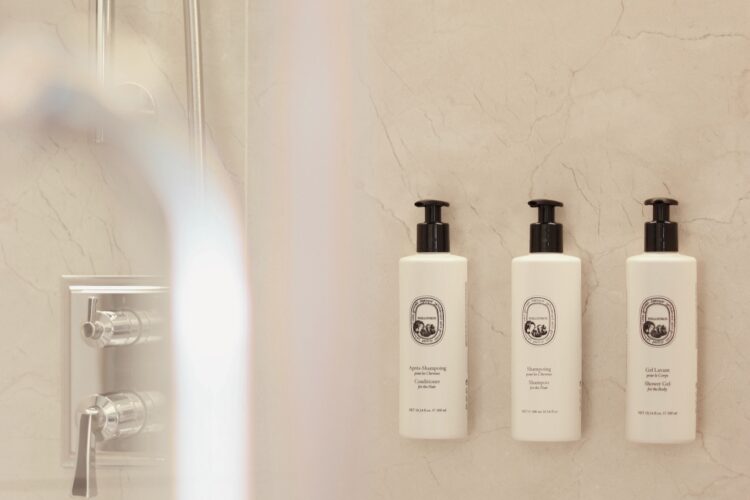Sustainable Hospitality Malaysia
Monica Tindall
In a follow-up to our piece on sustainable hospitality industry in Malaysia, five more businesses share their efforts to reduce their impact on the earth. They report on practices to learn, educate and change mindsets within their organisations and communities towards more intelligent systems and habits. Bit by bit, they show that small changes make a big difference.
Sustainable Hospitality Malaysia
Dewakan
Sustainability to Dewakan is about being responsible and accountable to the community we abide in. As such, our decision-making processes are not necessarily dictated by checklists and how-tos. Instead, we are guided by three tenets that permeate our actions. Ideally, we hope that by these guiding principles, we are able to address or contribute to relieving the ever-growing strain on our world.
1. Choice of consumption: A restaurant is by its very nature a machine of consumption without contributing to the regeneration of the produce it uses. Dewakan believes that we owe a responsibility to reduce our impact on the resources it takes to run a contemporary restaurant. As such main highlights of each menu are curated around local, native or endemic ingredients. This reduces our dependence on a large number of imported goods that have a large carbon footprint. At Dewakan, you will find ingredients lost to even Malaysians; Kulim (Scorodocarpus borneensis), Perah (Elateriospermum tapos), Keranji (Dialium indum), Bambangan (Mangifera pajang), Semomok (Elettariopsis curtisii) or Tarap (Artocarpus odoratissimus) are used to build unique flavour profiles that inspire Malaysians to cast their gaze on produce that doesn’t need to travel as far to reach the kitchen.
2. Knowledge: Being conscious of what we choose to serve is not enough. We then need to ensure that every stakeholder, vertically and horizontally, understands the impact of their decisions. We do this by actively including all team members at some level in the process of acquiring new ingredients from the native communities we work with. In the process of educating ourselves with the new ingredients, we then share them with the greater community through our dishes at the restaurant. Our social media posts are often rich with references to the unique ingredients we use.
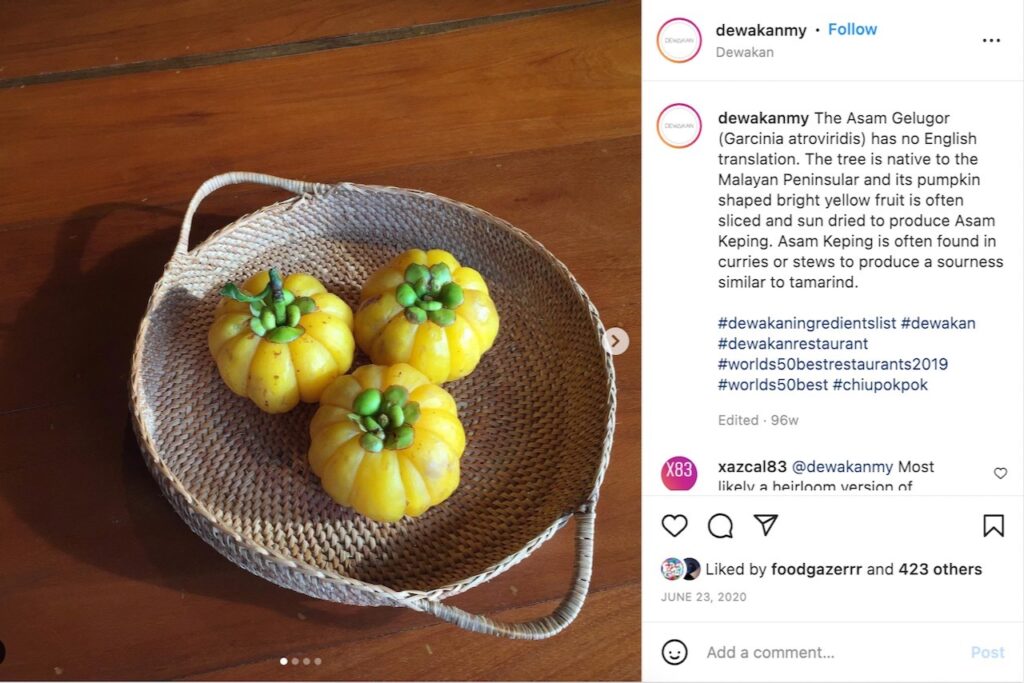
3. Shared Values: From this shared knowledge, we are now able to strengthen and build shared values within our community. It is our hope that this loose network of people who share the same values as us are also then compelled to see the value and potential in homegrown or native produce. When the demand for it becomes large enough, our dependency on imported produce and its carbon footprints can reduce. These shared values have opened unique opportunities. Dewakan has purchased seedlings of some endemic plants to be replanted on private property for the purpose of preservation. Because of our values, we see other restaurants adopting these ingredients and adding them to their repertoire.
We understand that these are long and broad strokes, and the measure of our success with this is not easily quantified. As such, we do not profess to be successful with efforts of sustainability and recognise that the issues are deeply complex. Especially given that restaurants are, after all, still businesses, the extent of idealism has realistic limitations that we are all subject to. However, in the grander scheme of things, we believe these principles if scaled, will have a greater impact on the industry’s contribution to regenerative sustainability.
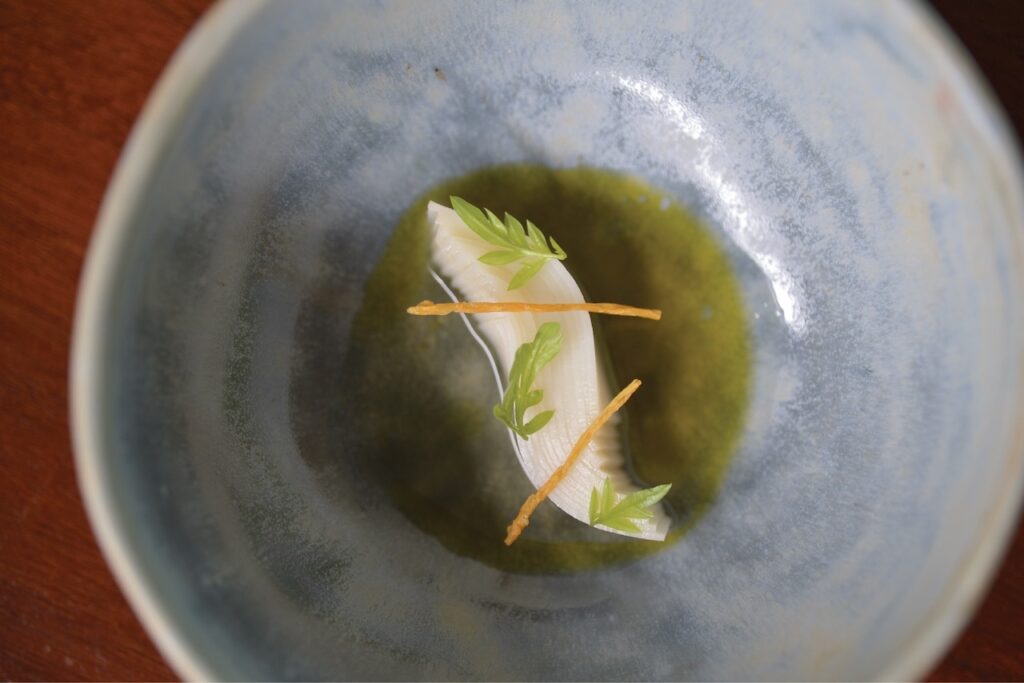
Dusun by OpenHouse
Firstly, at Dusun by OpenHouse, we don’t claim to be a green or sustainable restaurant. We have a long way to go but are attempting to do what we can to improve our systems to make a positive impact on the environment and community. We start with the basics of sorting our trash and taking what can be recycled to the recycling centre. We are working on ways to reduce and deal with our organic waste and are in the process of figuring out a composting solution.
Malaysian ingredients are valued here, and we try to source organic and locally wherever possible. We’ve built relationships with several local suppliers who farm responsibly to bring the highest quality to the consumer and also ensure the soil is healthy for generations to come.
We bottle our own water, filtered still and sparkling. A litre bottle of either is priced at RM 5, and RM 1 of every purchase goes towards a charity as voted on by guests. This alone has reduced thousands of single-use plastic bottles.
At Dusun, we have chosen to use the traditional Malaysian cooking method of bakar, or barbecue. As such, we burn local wood and attempt to offset our carbon footprint by making regular contributions to the Malaysian Nature Society. We try to imagine the totality of the impact of our choices and strive to balance, offset or reduce wherever we can.
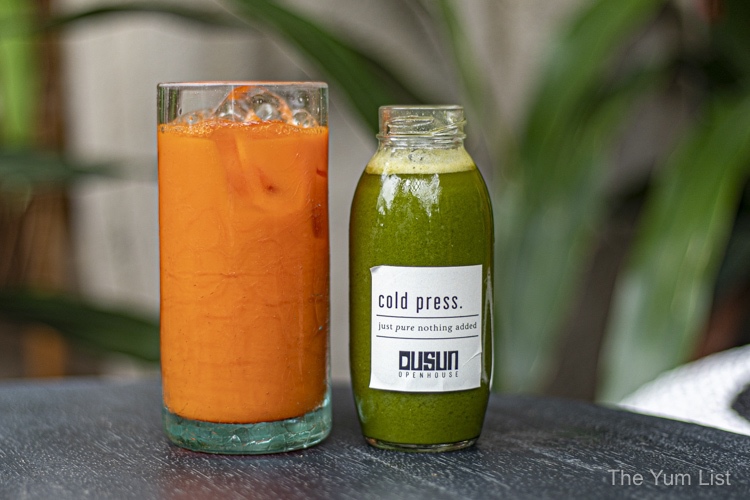
Evoke Gastrobar
One simple thing we do at Evoke Gastrobar that brings a benefit to the customer as well as the environment is filtering our own water with high-grade technology. We are able to get rid of all single-use plastic water bottles and give our diners the choice of still or sparkling water at a greatly reduced price. Not only are tonnes of plastic waste done away with, but so too are the carbon miles in getting bottles to us from across the globe.
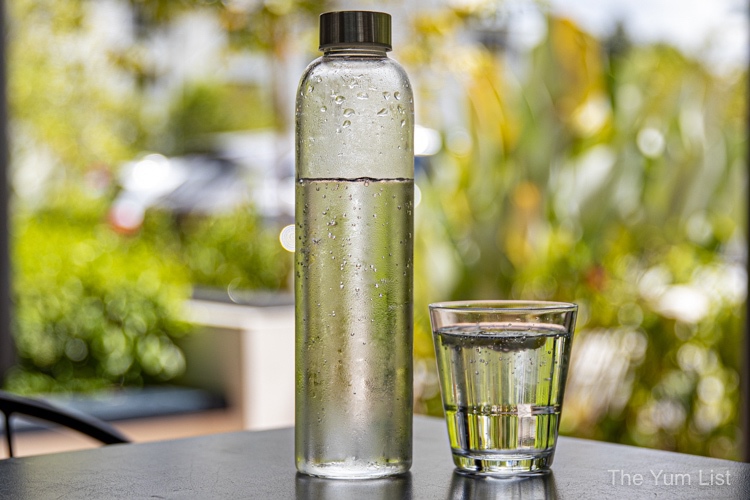
Reka – Sustainable Hospitality Malaysia
Early on in the creation of Reka, we asked ourselves – what does it mean to be a sustainable business? As a young bar, we’re still asking ourselves that question and how it relates to every part of our product, from the guest experience to the staff culture to the byproducts of our brews, fermentations, experiments, and distillates. We’re far from figuring things out but are slowly evolving the answers for what sustainability means to us. It was extremely important to highlight where we intend to go with this mission. Hence, we decided to centre our first menu around the idea of sustainability.
In our inaugural signature menu, The Domino Effect, every cocktail is linked with another by the use of a common ingredient except expressed in different forms. By reusing the byproduct of the main ingredient in one drink as a garnish in the following drink, we can create a beautiful chain reaction of flavour using the entire product, thus tremendously reducing waste.
We also prioritise farms and businesses committed to sustainable agriculture and production in ingredient sourcing, such as A Little Farm On the Hill in Janda Baik. In addition, we are currently working on initiatives for composting, repurposing paper and plastic waste into bar and bottle coasters, and completely plant-based material and dyes for bar swag and merch.
We’re only just getting started in our journey towards sustainability, and we hope to bring all our guests along with us for the ride.
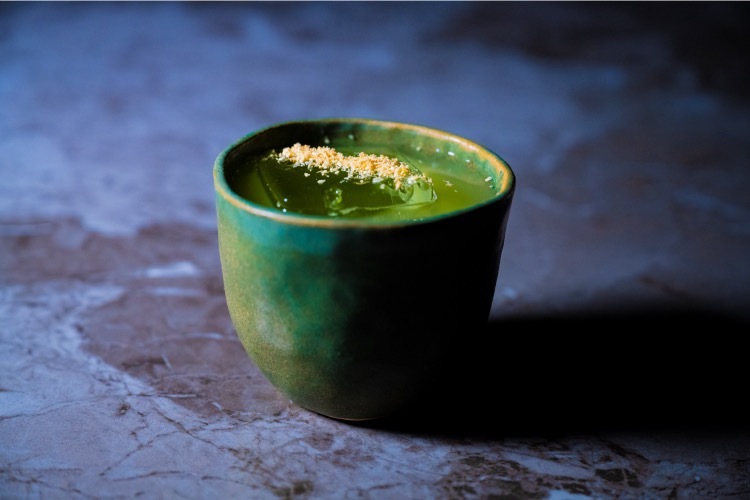
Mandarin Oriental, Kuala Lumpur
Mandarin Oriental, Kuala Lumpur focuses our strategy on food waste management, elimination of single-use plastic, responsible procurement and going paperless.
The very minimum businesses can do sort their recyclable waste into separate containers. At Mandarin Oriental, Kuala Lumpur, we have been using biodegradable bags since June 2021 and send all of our sorted trash to an authorised recycling centre. Food waste is fed into the food digester, which uses aerobic digestion to treat the food waste and discharges the end product (slurry water) into the sewer system, which means less food waste going to landfills.
One of the biggest things hotels can do is replace plastic bottles for mineral water with reusable glass bottles. We use water from Nordaq Fresh Water for guest rooms and Natura Water for their restaurants and bars. Nordaq and Natura bottles are sanitised daily and filled in-house, using Swedish and American technology.
We have found eco-alternatives for use in our F&B operations, such as switching plastic cocktail picks to those made of wood. Plastic straws and stirrers have also been changed from plastic to paper or metal. Takeaway containers and cutlery are now paper board material with compartments for wooden cutlery and glass condiment containers. Additionally, mooncake packaging is made from bamboo and recycled materials.
Guest room amenities by PALATINO Hospitality are single-use-plastic free (SUPF). In addition to being single-use plastic-free, this line also focuses on sustainable sourcing. Hence FSC certified paper is being used, and FSC certified wood and organic cotton. Packaging of this exclusive line is made in FSC-certified paper boxes in high-end textured paper. Additionally, Diptyque amenities are used in all rooms and suites.
Sourcing of ingredients and commodities is just as important with an increase in seafood found on the sustainable seafood list. As much as possible, MOKUL sources from fisheries and aquaculture farms with healthy fish and responsible labour practices. No endangered species are served in any restaurant.
Furthermore, agricultural commodities such as cocoa, tea, coffee and vanilla are increasingly purchased from local producers, manufacturers and suppliers. We look for local, fair-trade products.
Lastly, Mandarin Oriental, Kuala Lumpur is heading towards paperless operations. We have introduced QR codes in all rooms on TV. The service allows guests to access the latest information about the hotel, digital map, in-room dining, minibar menu, shop MO and the digital library without paper.
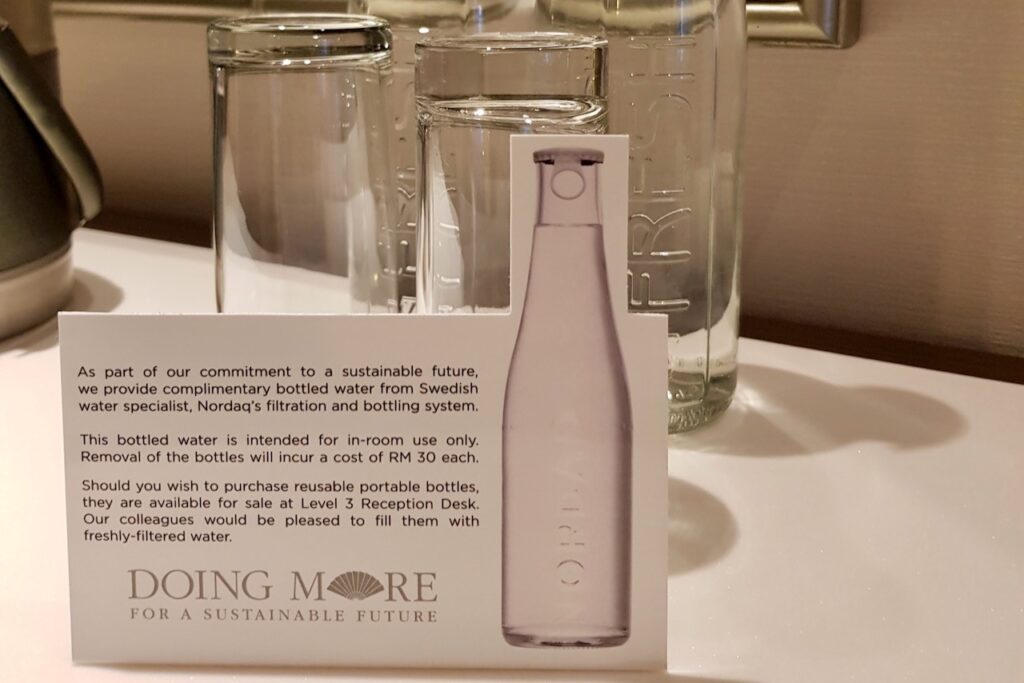
Sustainable Hospitality Malaysia
Small single-owner establishments and giants in the industry show that thoughtful practice, system changes and a mindset of continual improvement can indeed lead to more sustainable hospitality industry in Malaysia. What are you doing to support them, and what changes are you making to get on board?

